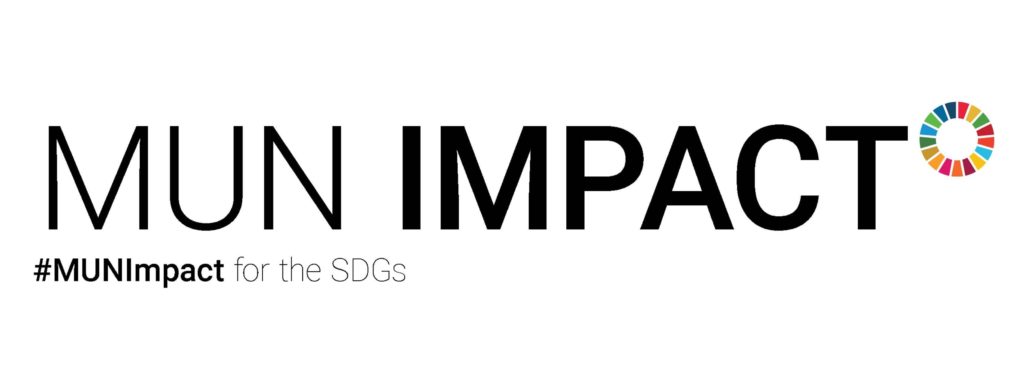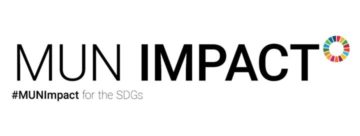As the first day of the Global Summit finally arrived, many professionals from various fields of work prepared presentations to speak on their passions and educate the youth of the MUN program. Albert Olivia, the Impact Summit Director, has the responsibility of managing events and projects in more than 25 countries around the world. He also works with over 5,000 people in order to educate students about the SDGs. Olivia works through social media to connect with others and implement the SDGs on various online campaigns. He has travelled to many countries such as Qatar, Israel, and the UK for MUN conferences and has also attended more than 17 United Nations conferences both as a delegate and chair.
Olivia started his presentation by introducing himself and showing a slide show representing multiple social projects he has worked on. It was clear from the beginning that he was very passionate about including all groups in his fight for social equality. However, he went on to say, “We are not equal. There will always be inequalities in our world as it is simply human nature.” He directed this statement into a question that he asked his audience to think about; “Instead of asking how can we stop inequality, ask how can we slow down the increasing trend of inequality”. From there, Olivia began to narrow down the topic of equal opportunity to just the aspect of wealth. While doing so, he directed the delegate’s attention to a survey of yes and no questions about traveling to different countries for MUN conferences. One of those questions was “Have you ever attended a conference in a more economically developed country?” (a MEDC) and the response was 56% of the audience said yes, while 43% said no. The next question on the survey was “Have you ever attended a conference in a less economically developed country?” (a LEDC) and this response was much different as only 23% of the delegates said yes and 77% said no. He used this data to prove his idea that equal opportunity does not currently exist because LEDCs do not have the wealth to provide the same quality facilities as the MEDCs, therefore, more people attend conferences in the countries that are more economically developed.
Olivia stated that the way to begin change and progress in countries that are economically underdeveloped is to start analyzing the “why’s” and ask more questions. For example, he engaged his audience by asking why larger events such as football or soccer games don’t take place in less wealthy countries. When asked how this would help develop a country economically, he replied that it would create a chain reaction because people will begin to see that it is not only possible, but also makes a change by bringing attention to the country and its people. Another example Olivia used was questioning distribution of technology. He stated that many schools in LEDCs do not have access to the same technology that other countries around the world have available to them. This again, causes a large inequality in opportunity as technology is becoming a major part of the education system more and more each day. Olivia expressed to the audience his plan to create a database in Africa that connects different schools to ensure more opportunities. For example, exchange programs and studies abroad, as these things are undoubtedly more accessible to MEDCs that have technology available in their educational systems.
In conclusion, Albert Olivia shared insightful information to help broaden the mindset of what equal opportunity looks like, and different ways to achieve it. The delegates who attended this presentation were engaged and interested in the session and seemed to enjoy the experience, which ultimately, is the main goal of the Global Summit!
_
By Audrey Pinson

